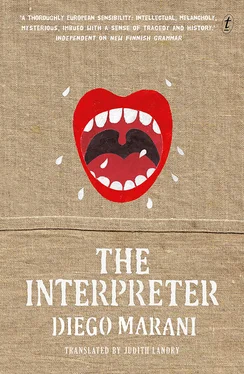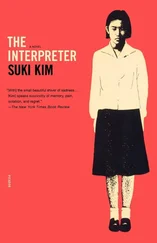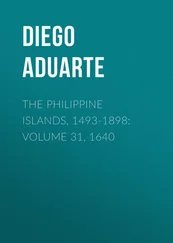As he spoke, the veins in his neck were contracting and snapping in his throat like whips. Thinking back to that first encounter, to that first time I witnessed the contortions of that face, all that I remember are two blue veins and the bruised aperture of a mouth.
I lowered my eyes, desperately seeking for something to say. It was clear that the man before me was deranged. I had to find the words to placate him, to distance him from me, and I had to do so as delicately as possible. I pretended to be absorbed in a page in his file while I considered my position. I took a deep breath, bent my head, prepared a smile and raised my face to him, somewhat uncertainly.
‘Don’t you worry. I’ll have a word with Stauber and everything will be sorted out!’ I interrupted whatever it was he seemed to want to say by getting up and showing him to the door.
‘There’s no cause for alarm. Civilised people can always come to an understanding, can they not?’ I added for further reassurance, while steering him politely but firmly out of the office. He put up no resistance, thinking perhaps that as yet I knew nothing of his case.
‘You will tell Stauber that I’m not mad, won’t you?’ he repeated as he stamped off down the corridor, his footsteps ringing on the lino. I closed the door, exchanging relieved glances with my secretary. I went back to my desk and sat there motionless for quite some time, staring at the empty chair in front of me and listening to the rain pattering against the window panes.
That afternoon I had a bit of free time, so I had myself driven to the conference centre, a luxurious modern building with large windows overlooking the lake, all pink-veined marble and expensive carpeting. I went up to the piano nobile and into a conference hall. The languages being translated were listed on a board; I glanced from the balcony at the seats in the amphitheatre, where the delegates were seated behind the plaques with the names of their countries, their hands on their earphones. A metallic chatter, muffled by the large windows, vibrated senselessly through the air, dying away into the wood panelling on the walls. The door leading to the interpreters’ booths was open. I went up four lavishly carpeted steps and turned into the narrow corridor which ran around the hall, with the interpreters’ booths opening off it. In each one I saw the shadows of two interpreters, one bent over the microphone, the other listening attentively. And now those glass niches, set into the wall, suddenly struck me as resembling the cells in a laboratory used for storing the valves of primitive organisms, each consisting of just one mouth and one ear, sheathed by vague liquid filaments. I found an open door and an empty booth next to the one used by the French interpreters, slipped into it and peered through the blue-tinted glass. Below me, an usher was walking among the seats, distributing leaflets. The delegates were leafing through their papers and exchanging nods; from time to time one would raise his hand to ask to speak. I took the headphones off the hook, held them up to one ear and turned the knob to hear the various speakers. Voices and languages alternated like so many radio stations from distant countries. The speaker was reading out his piece with his eyes on his audience, and the interpreters would follow him through the microphones. Intrigued, I sat down on the chair and put both earphones on; I tried the French channel first, leaning forwards to observe the interpreter in the next booth whose voice I was hearing: he too was leaning forwards slightly as he spoke, clenching and unclenching his fists as he did so, but his facial expressions did not follow the intonation of his speech, as if the voice that was speaking did not inhabit that body but was simply passing through it, using its vocal cords, its lips, its palate in order to become sound. I looked at his eyes and saw in them a kind of blindness, a fixed, blank, inhuman look, as though he were seeing the unspeakable and could not look away. That cold world I had just glimpsed filled me with fear. I pushed back my chair, turned the knob and listened for a moment to the German. Then I happened upon some unknown language, the merest burble of sound that echoed in my ears, singsong and sugary, possibly oriental. The next one I came upon was harsher, syncopated and unyielding. I turned the knob again, and heard a female voice pronouncing gummy vowels, which seemed to get stuck on her palate, those of a flabby, boneless language, as though set in transparent gristle. My mind on the interpreter’s weird ideas, I was foolishly trying to understand languages I had no knowledge of, breaking down words and syllables, intrigued by the thought that it might be possible to find some feature shared by that swarm of jumbled voices. Could there really be any link between them? I fantasised that I might be the person to track it down. I, who knew nothing of languages and hated anything I couldn’t understand. I abandoned myself to such fantasies and, lulled by the warm female voice I had in my ear, my thoughts wandered back to the pictures of primitive men in my old school books, Egyptian hieroglyphs under a drawing of the pyramids. A vivid image of my German teacher, set between screeching monkeys and brightly coloured parrots, his lapels spattered with chalk from the declension-strewn blackboard, now swam into my mind; he was pointing his finger at me, pronouncing my name with his annoying accent. I hung the earphones back on the hook and left the booth with a distinct sense of unease. I shook my head, slightly ashamed at having entertained those absurd thoughts even for a moment, at believing that there might be a grain of truth in the interpreter’s abstruse theories. No, that man was sick, and had to go — for his own good and for the good name of our institution.
The days that followed were radiant with sunshine; the sky was filled with light until late evening. I would go home on foot, enjoying the warm air, still ringing with birdsong; I would listen to the wind rustling in the new leaves of the trees in the park, the hooting of a distant ferry on the lake. As I walked, through open windows I could see laid supper tables, lit rooms and televisions. In front of my own house I would pause for a moment before going in; pushing open the door, I would invariably dream of finding everything as it once was: the light on in the kitchen, a bunch of fresh flowers in a vase in the hall of a Tuesday, the smell of floor polish of a Friday, the tapping of Irene’s heels as she came to meet me, a favourite record playing in the living room. Each time in fact, I found a different sort of change, and I had to decipher ever unknown signs to work out the circumstances in which I would find my companion: she would emerge from a shadowy sofa or a room where she had been waiting for me, gazing from a window, lost in thought; she would join me in the kitchen, often barefoot; she would rest her elbows wearily on the table and watch me eating, peering out at me from under her fringe. Sometimes I would catch her still asleep, completely dressed, one leg hanging over the edge of the bed, her handbag still on her arm. On weekends she got up late and would eat no more than a bite of the croissant I had bought her from her favourite bakery at the end of the road; she would leaf through the papers for the entertainment pages, underlining the times that films would be showing at strange cinemas, which was her way of letting me know where she would be going that afternoon. Sometimes I had tried accompanying her, picking up my coat and following her; in the car she would talk of trivia, of how the maid had dyed the sheets pink, about how a curtain in the living room had come unstitched and what a bore it was going to be to have it mended. But all of our conversations had the inconsequential quality of those you have on the platform just before one of you gets onto a train. On coming out of the cinema, in the blue light of the afternoon streets, my heart would be weighed down with a sadness heavy as lead. And so, with time, I ended up staying at home alone. I would spend my time in the garden, obsessively tending my roses, as though that were the only way that I could hope to salvage my bond with Irene. At the first sign of an insect on the swelling buds I would rush to spray on insecticide, to spread manure and other nutrients; I would cut off any twig that was out of place, fix climbers to their supports, dig up the slightest weed, pull off dead leaves and pointlessly remove the faded petals. Irene was receding further from me every day, and I could do nothing but be witness to such estrangement. I measured it from time to time, registering the length of her silences, the frequency of her absences, the harshness of her ways; secretly, I hoodwinked myself into believing that the careful registering and measuring of this unknown hurt would ultimately reveal its nature and provide me with some antidote.
Читать дальше












